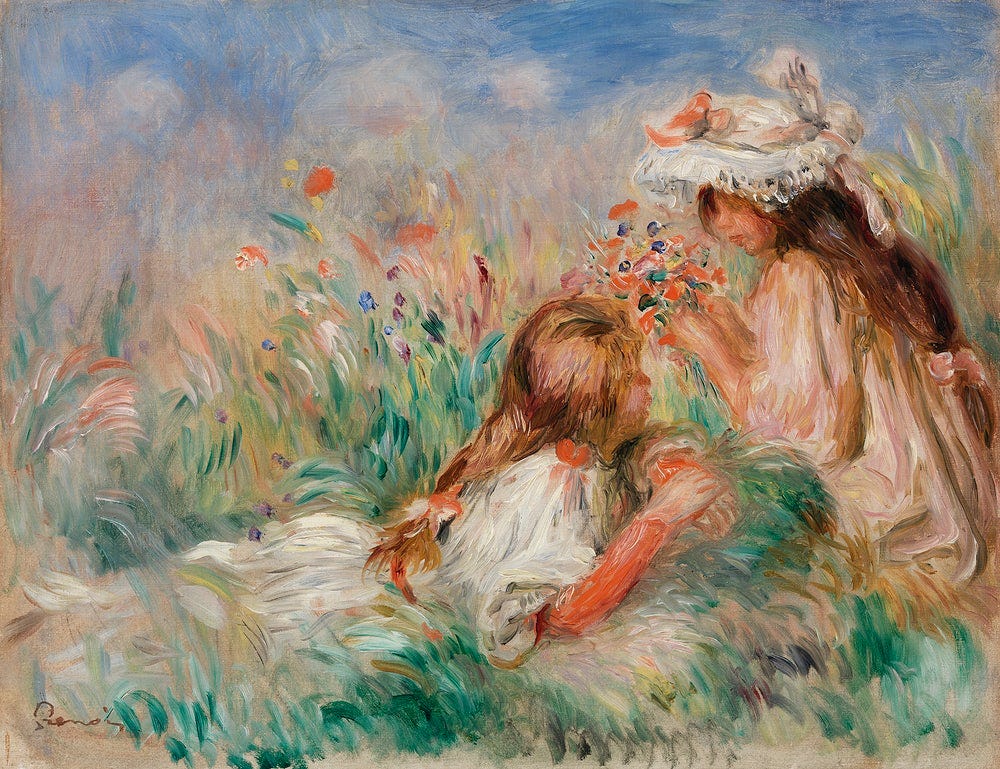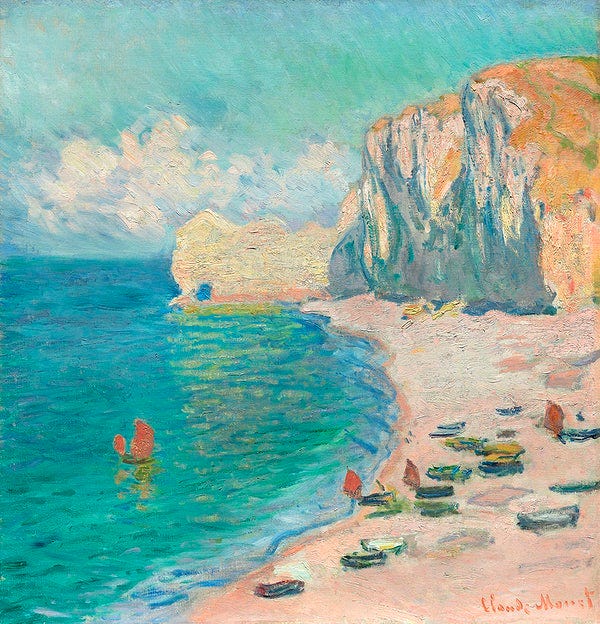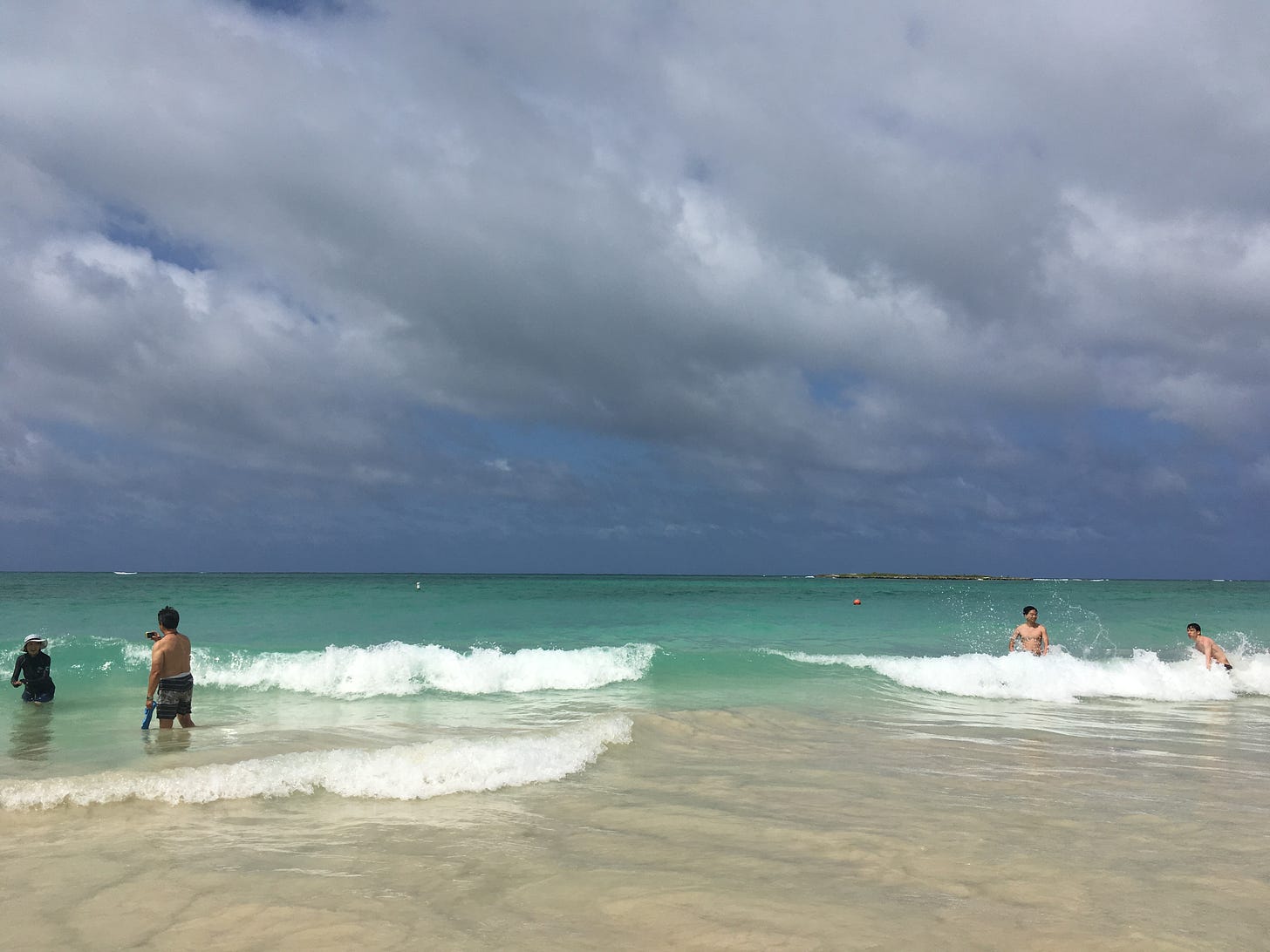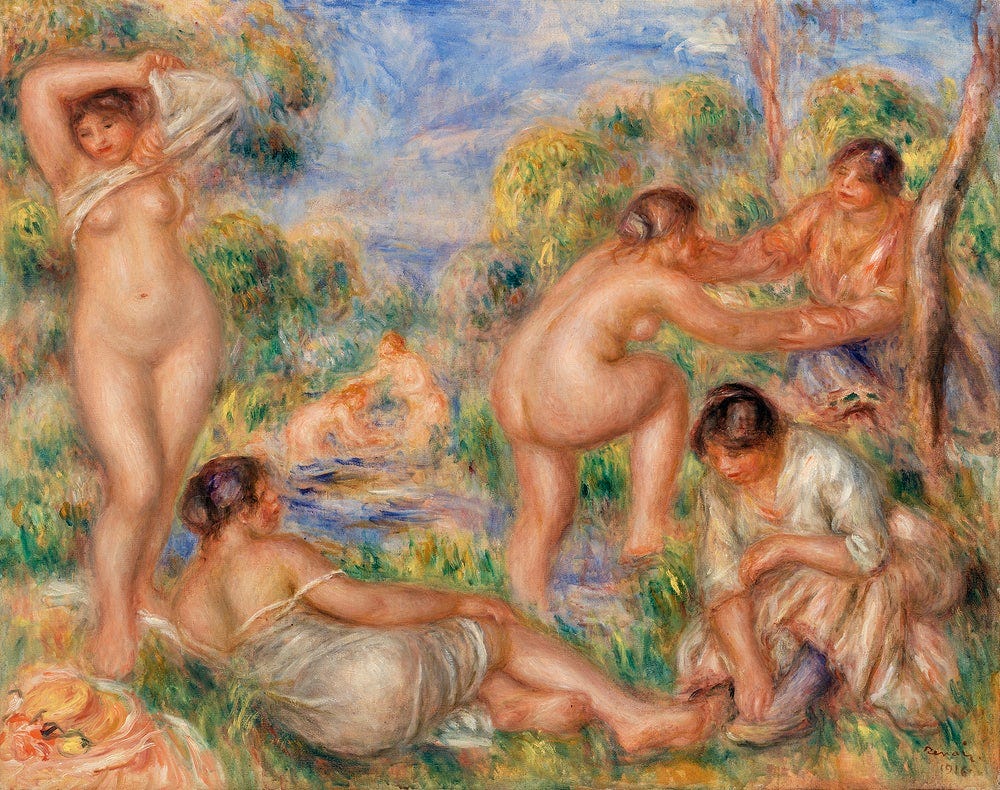On New Year’s Day I Googled the name of one of my mother’s friends— someone I loved very much and had known since childhood. The top result was her obituary.
The friend had been present for almost my entire life; a bubbly, effervescent and beautiful person from a big Irish Catholic family, with whom my mom had a relationship both superficial and intimate. She worked as a flight attendant. I spent nights at her condo, with her funny, handsome husband, when I was little. Shortly after my mom married my stepfather (an abusive, hilarious, charming and immature drunk) the friend disappeared. I later learned they had a falling out, and the friend refused my mother’s calls. I should have told her why, the friend said to me later, after my mother had died.
It was that friend I called on the night I couldn’t reach my mother on the phone in May 2010, that friend who assured me my mother was fine, and that friend who met me in the airport terminal when I arrived in Seattle from Fairbanks, Alaska, thinking my mother had died peacefully of cancer only to find out she’d shot herself, writing in her suicide notes that she’d fabricated her cancer, which the autopsy confirmed. The friend assumed the role of a mother the best she could, putting her arm around me and showing me to the guest room in her condo, all decorated with pink. We’ll call it Ana’s room, she said. You can stay here whenever you want.
It was on that frilly bed that I emptied out the contents of my mother’s purse and applied her half-used Christian Dior lip gloss to my own lips. The window, white lined and rimmed, was half open to the clear night, the sound of crickets lonesome alongside passing cars.
Over the course of the next decade my mother’s friend was a constant, but there was always an underlying tension. She talked about my mom’s suicide often, always trying to work out solutions to why my mother made the choice to take her life. She asked me disturbing questions and told me that my mom has said bad things about me, to her.
In the beginning she mistrusted me, not believing that my mother could have lied, not believing that her friend had been abusive, an alcoholic. How do I know if I can believe you, she asked me in the airport parking lot, when I told her how relieved I was that my mom had been telling the truth, before I found out my mom had killed herself. I thought it an odd question, one that evoked a desperate flutter in me; what if, still, no one will believe me, just as they have never believed me, never believed that someone like my mother could be who I said she was.
Despite her mistrust, she tried. And I did, too.
My mother’s friend took me to midnight mass, where I was cleansed with frankincense and myrrh. She visited me once while I was teaching in Honolulu and brought a plastic-wrapped package of Honolulu Cookie Company cookies. I visited her in Philadelphia once, for New Year’s. It was my last semester of undergrad and my entire body was broken out in hives. I had a disabling panic attack on my drive back.
I loved her, but seeing her was painful. I wonder if she felt similarly.
I wonder, sometimes, why we feel things, but don’t tell each other what we’re feeling.
The Christmas after my mother died, her friend brought over a small artificial tree and plugged it in on my grandfather’s table. She gave me two guest passes so I could fly to Honolulu and escape Seattle. She was more family than my family.
A couple months after my MFA graduation, in the summer of 2018, she and I had an argument about immigration, and she got angry with me. We hadn’t talked since.
How is it that people can be so alive, and then, not? I took for granted that she would be around a long time. A naive thing to do given what I know. She was only 59, nine years older than my mother when she had died.
The friend’s death was a punch to the gut. How was her family? Her daughter and husband? I wrote them a letter of condolence and sent it off. I emailed another friend of my mother’s, whose response was cold and distant.
I was overcome by shame, my former state of being. Why hadn’t anyone told me? I spiraled and replayed our argument repeatedly; a painful exercise. Should I have contacted her? Should I have apologized, though I didn’t feel sorry? Was she in the right, or was I? Did she think of me before dying, and if she did, could she have known how much I loved her and how inconsequential our disagreement was to the impact she had on me?
Being a survivor of parental suicide, I am well versed in questions that don’t have answers.
I concluded this: we are humans, flitting in and out of each other’s lives. Some of us know each other the whole time we’re on earth. That is something remarkable. Some of us know each other only a few hours, days, weeks, or years. That can be equally remarkable. A chance encounter with the right person, with the right words or movements or possessions, can change the course of our entire lives.
Many of us, most of us, are doing the best we can.
Energy does not die. It only changes.
I haven’t cried for my mother’s friend yet, though I know there is deep feeling for her. I don’t cry often. I envy those who can. I used to be able to. But I have pictured her many times this week, surrounded in golden light, like I picture the homeless people on the corner who could be me, like I picture my mother, like I picture everyone. Surrounded in golden, warm light. Safe. Held. Loved.
It’s occurred to me that I don’t picture myself this way. Maybe I should start doing that.
I’ve never survived a death in my time on earth that’s held resolution. My father died across the country from me in 2013. I didn’t know him at all, excepting some vague memories of the handful of times I saw him growing up. My mother left her notes, which answered few questions. And the friends I lost in my early twenties, to drug overdoses; too many of them. None of those deaths feel resolved, and they won’t, if we’re adhering to the current definition of the word, which means to settle, or find a solution.
No, not that. It didn’t used to mean that, but instead to melt. Dissolve. To untie and release.
There are untied ribbons waving in the soft breeze of my past. Why would I need to string them together, make them into something constricted and tight? Leaving things unresolved allows us to witness their movement, their shifting. It allows them to transform us slowly and over time, like water moving through soft rock, creating rainbowed canyons and cliffs.
This week I’ve been doing resilience practice, something I learned long ago but am exploring more in my somatics class through wildbody somatics. In the practice we close our eyes and think of a time when we felt most ourselves. The first time I practiced this I flipped through memories and immersed myself in the ocean at Kailua Beach, on Oahu, where I swam alone a few summers ago.
I don’t know when I started fearing the ocean. For most of my life I’ve been scared of swimming alone.
I was teaching at Punahou School, in Honolulu, and spent many days at the beach, reading and wishing I could swim, but only going in up to my waist or chest until I was overcome by fear and retreated. Finally a day came, the day in the picture above. The sky was cornflower blue, streaked with low hanging white clouds, and the water shone turquoise, the temperature of a warm bath. I walked in, in, in, until my feet lifted off the ground and the water carried me.
Oh, that feeling of being carried. Of resting in the water. Of trusting the water to hold me. That’s what scared me. The trusting. My fear pulsed through me like continuous lightning strikes— that whole summer I’d been having nightly panic attacks, the previous spring, too, and I would continue to have them the following winter and spring, until I got the proper medication. At that moment I could feel my panic pulsing through me. I leaned my head into the cupping hand of a small wave. I turned my body like a seal and dove under a larger wave. I emerged from the water, smiling. There were teenagers near me, throwing a ball to one another while swimming. There was a couple, floating on the waves together. I didn’t go out farther than them, though I wanted to. There was an invisible line I couldn’t cross.
They swam and floated so casually. So easily.
I often feel as if I am restrained by something others aren’t. I’ve learned that this restraint, this fear of love, this mistrust, is my C-PTSD. It’s part of my physiological makeup, and I’m slowly learning to allow it without shaming myself. The shame pulls the invisible line towards me and makes my world smaller.
I used to go backpacking alone, and now I can’t. If I push myself too far in any direction, too far into the fear, it will engulf me and I will lose myself for days, weeks.
Over time, with self-compassion, I lose myself less, and find myself again, more easily.
I am not the only one that experiences this, and it doesn’t make my life any less beautiful, any less fulfilling, than someone who doesn’t experience it. I have to believe this, or it’s too painful.
The people around me casually swam and floated. For me, it was a crystalline experience, pressed into my memory, each sensation solidified and always inhabitable. Neither experience is superior, but I am glad for mine, too.
That’s resilience. Finding the beauty in our limitations. Inching towards something we want, without forcing ourselves. Here’s a lesson Pema Chodron relayed from her teacher Chogyam Trungpa:
"And here is the advice Trungpa Rinpoche gave me. He said, 'Well, it's a lot like walking into the ocean, and a big wave comes and knocks you over. And you find yourself lying on the bottom with sand in your nose and in your mouth. And you are lying there, and you have a choice. You can either lie there, or you can stand up and start to keep walking out to sea.'
"So, basically, you stand up, because the 'lying there' choice equals dying.
"Metaphorically lying there is what a lot of us choose to do at that point. But you can choose to stand up and start walking, and after a while another big wave comes and knocks you down.
"You find yourself at the bottom of the ocean with sand in your nose and sand in your mouth, and again you have the choice to lie there or to stand up and start walking forward.
" 'So the waves keep coming,' he said. 'And you keep cultivating your courage and bravery and sense of humor to relate to this situation of the waves, and you keep getting up and going forward.'
"This was his advice to me.
"Trungpa then said, 'After a while, it will begin to seem to you that the waves are getting smaller and smaller. And they won't knock you over anymore.'
"That is good life advice.
"It isn't that the waves stop coming. It's that because you train in holding the rawness of vulnerability in your heart, the waves just appear to be getting smaller and smaller, and they don't knock you over anymore.
I’ve known of this passage since I was nineteen, and repeated it to myself in many ways throughout my life. It reminds me that forward movement doesn’t necessarily mean our lives will change. We will, though, if we allow ourselves, with compassion. Neuroscience supports this: our brains never stop growing if we never stop learning and challenging ourselves.
I’ve been away from social media for two weeks.
I no longer accidentally try to go to Twitter or Instagram. I’d be lying if I said I hadn’t been glued to my phone more than usual after the events of this week (which I’m not going to address, this is a reprieve), but if I accidentally click a link that sends me to a social media site I close the window right away, not because I have to but because I want to, because the idea of immersing myself in the intense stimulation and cacophony of other people’s opinions and rants and lives is now distasteful to me.
My life is better without social media. I still miss it when others refer to it.
I can see clearly now that the FOMO I experienced during my first week of separation was withdrawal. It was a lie created by the social media companies themselves, that life happens within those borders, and if we travel outside of them we’ll miss out. I was especially grateful that in this week’s chaos I couldn’t scroll Twitter and cram my brain full of everyone else’s thoughts. Instead, I read entire articles written by experts. Those amazing Twitter threads? Those get made into whole essays, and they’re more nuanced than the threads most of the time.
It doesn’t feel scary anymore not to be advertising myself on Twitter. Marketing myself. Being a type of person. A brand. And Instagram? When I think of it I can see that magenta yellow and brown design— or have I already forgotten the colors? I’ve written letters to friends. I’ve had phone calls. Do I miss your stories? Seeing the immediate texture of your lives? Yes. I do. And also, I’m still here.
I write to you after eight hours of yoga teacher training. I am full of connection, of hope. Last night I met the folx who I’ll be sharing journeys with over the next few months. Today, after our first full day, I know more about myself and feel much more humble than yesterday.
I remind myself: be vulnerable. I remind myself: trust.
I’ve started reading Skill In Action: Radicalizing Your Yoga Practice for a Just World, a required text for our training. I’ve been thinking more deeply about my relationship to yoga, and how, so often, I’ve seen it as both a way to tap into myself and a way to lose weight. All exercise can be activating for some people— I can still conjure myself on the stairmill at Syracuse University, pumping my legs up and down while picturing myself in a smaller body for motivation.
I am ready to learn how to be within movement without a goal to change my body. Without upholding the rule of white supremacy, which has poisoned us all to believe that there is an ideal state of being. Some kind of purity.

Weekly roundup of inspiration (with a dose of activism):
I loved this piece about Heather Cox Richardson, an American historian who has garnered hundreds of thousands of subscribers on Substack. I definitely recommend her newsletter, which comes straight to your inbox every morning.
Lydia Davis wrote a short story about a toilet paper company and it’s fucking amazing.
Last weekend I watched Miranda July’s Kajillionaire TWICE. It’s a beautiful metaphor for so many things, but really killed me with its vision for queer love and connection. Photographically, it was stunning. I bought the film because I couldn’t find it streaming, and it was a worthy purchase to add to my few select films.
Can we please give a round of applause to Stacey Abrams, hopefully our next president after Joe Biden? While you’re at it, read this piece: The Never-ending Coup Against Black America.
The flute (yes the instrument) deserves more credit. Here are a few short pieces that will help you appreciate it more. If you love the flute already, you’ll love these.
This Bloomberg piece about Slow Streets and how they can erase the experiences of and further marginalize communities of color in large cities is required reading for all of us. I’ve appreciated the slow street in two Seattle neighborhoods, but never considered how they prioritized wealthier neighborhoods and made lives of essential workers harder in order to make life pleasant for those privileged enough to work from home. City planning has historically subjugated already struggling populations (think of redlining and how freeways often dissect cities both small and large), and we need to educate ourselves on how to remedy this.
I have so many books borrowed from the library that I find myself reading frantically and taking a breath to remind myself: they’re there. The Enlightenment of the Greengage Tree by Shookoofeh Azar is my current obsession. It’s pure magic; chock full of arresting images and reminiscent of Gabriel García Márquez. The narrator is a thirteen year-old ghost. Shookoofeh is the first Iranian author ever to be longlisted for the Booker Prize.
Why yes, I have been obsessed with Suzi Analogue lately, thank you for asking.
Aušra Kaziliūnaitė is a Lithuanian poet and philosopher doing incredible work. Here’s a recorded interview with her. I suggest speeding through the interviewer bits, because she has the most interesting things to say.
In Orion Magazine, Margaret Atwood wrote a beautiful tribute to Barry Lopez.
Outkast’s Stankonia is over twenty years old. It’s one of the best albums on the planet.
Have you watched My Octopus Teacher? It’s on Netflix. It’s a beautiful film about passion, connection, and our similarity to so many wild things. I also loved Soul of an Octopus, which is very different, and not a film.
I stumbled across this short video of famous and rich people talking about happiness.
Lastly, here’s a 23 minute video about a mama cat and her kittens, by one of my favorite filmmakers, Maya Deren.
My dear readers, thank you so much for perusing my words and thoughts and feelings and inspirations. I am truly grateful that you value what I have to say.
With love,
Stacy







